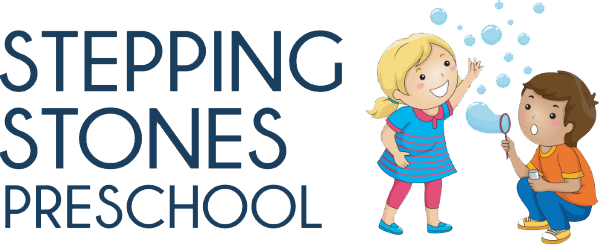Our Curriculum
We base our teaching curriculum on the premise that children learn while they are playing, or “academics through play.” Play is essential to learning, especially during the early years as children “learn how to learn.” As children indulge their natural inclinations to explore, investigate, and experiment through developmentally appropriate play, they acquire the fundamental knowledge they need for their future.
Stepping Stones Preschool curriculum is centered on the Arizona State Early Learning Standards for early childhood education and emphasizes active participatory learning. Active learning means students have direct, hands-on experiences with people, objects, events, and ideas. Children’s interests and choices are at the heart of Stepping Stones Preschool’s approach to education. We give children the foundation upon which lifelong learning is built.
For more information about our policies and procedures please refer to our parent handbook.


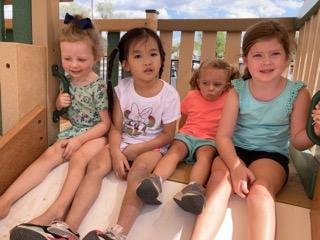

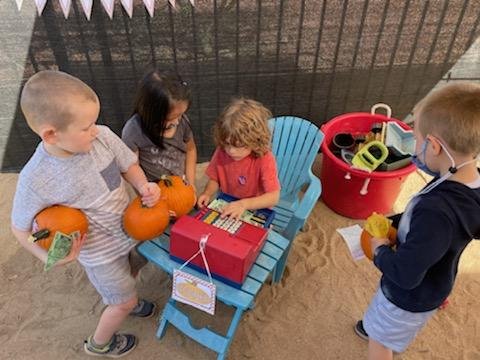
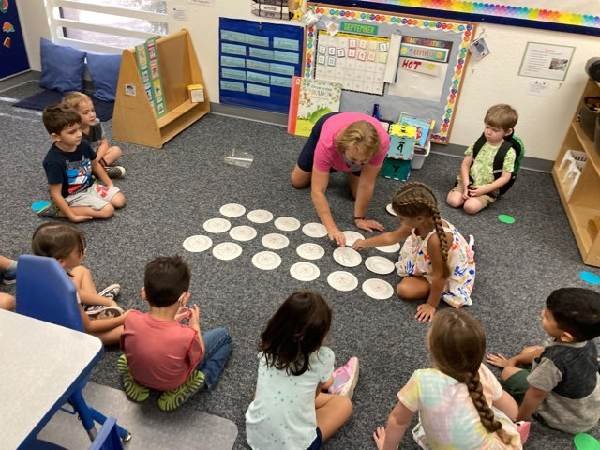
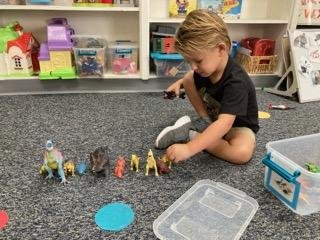
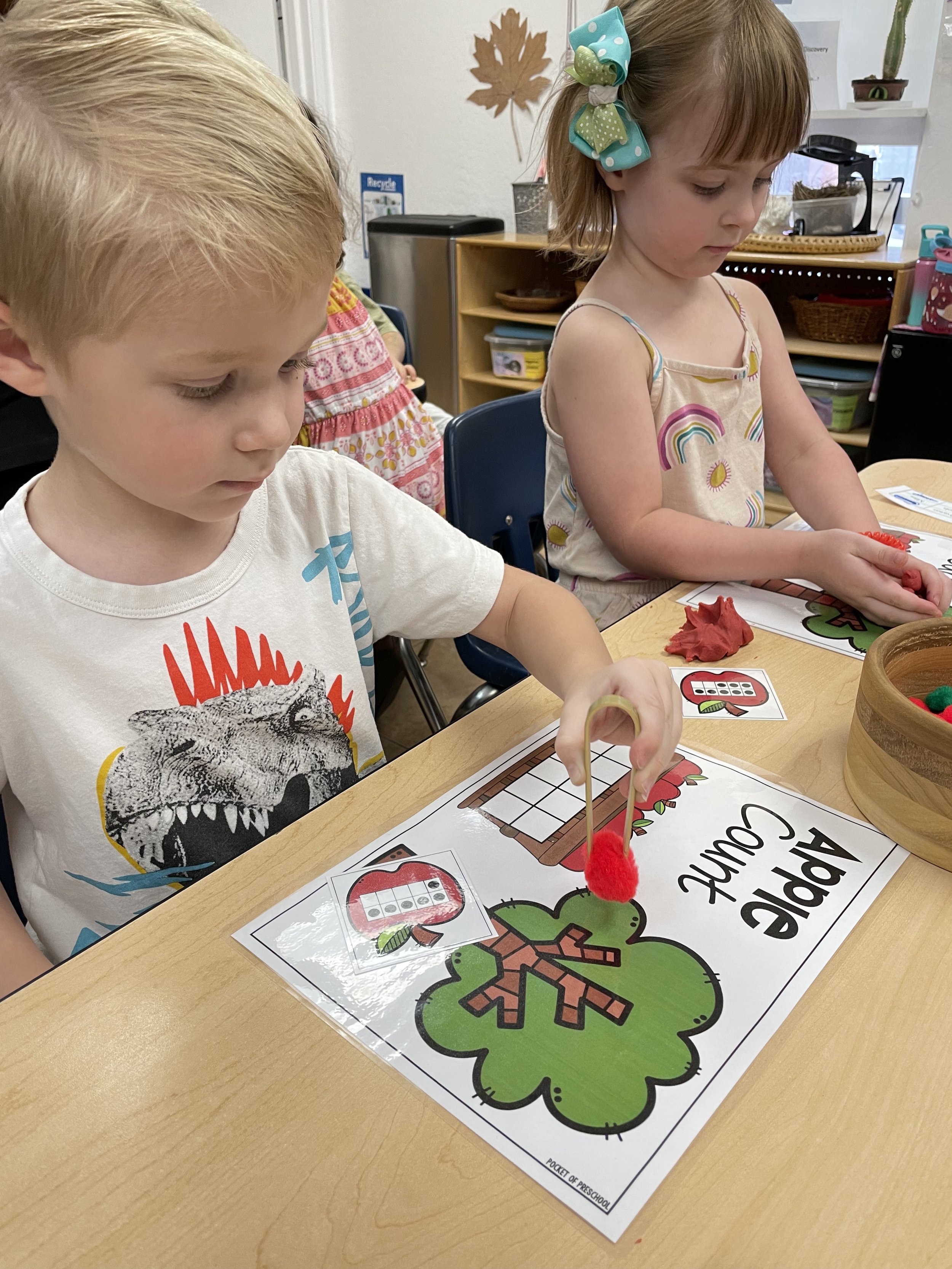

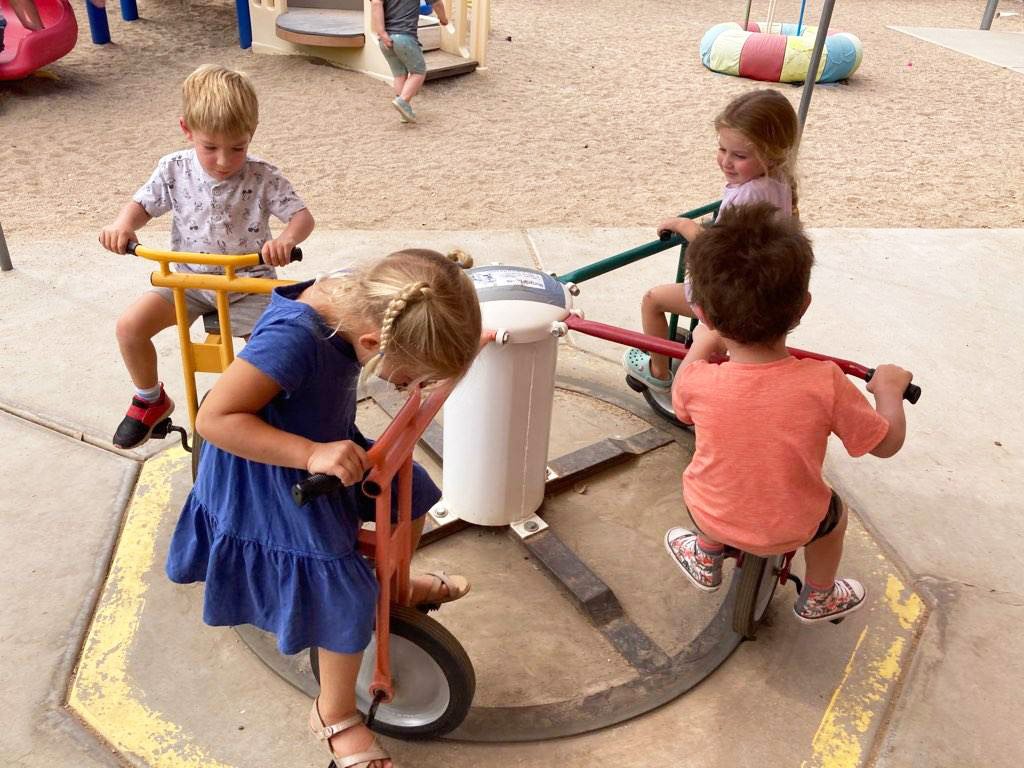















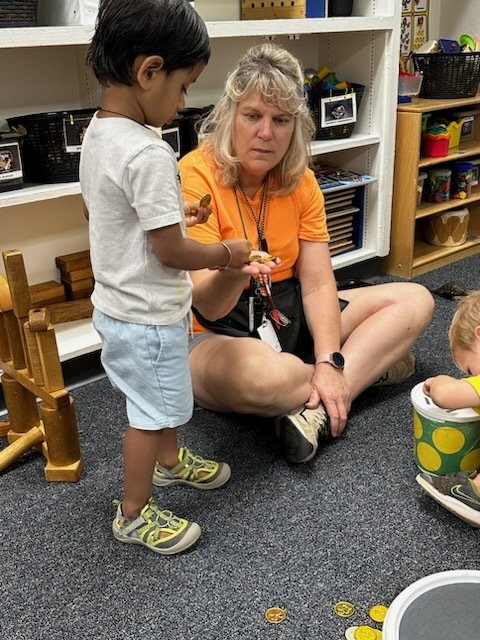
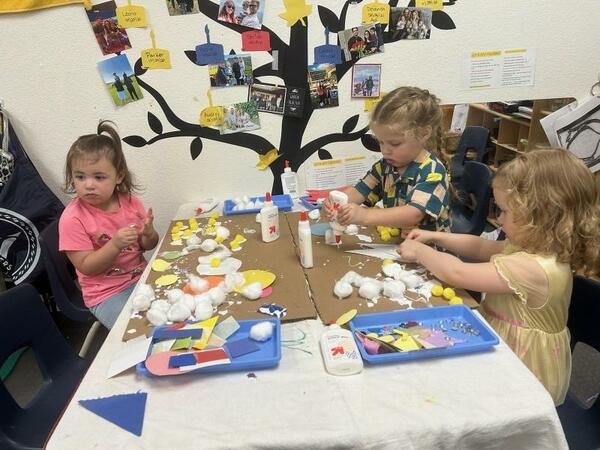
We Are Learning…
-
Social and Emotional Development
Assessing and helping children grow in their knowledge of self, their understanding of responsibility, social interactions with others, developing a child’s confidence, problem-solving abilities, creativity, persistence, initiative, and curiosity.
-
Fine Arts
Dramatic play, music, creative movement, and creative visual arts using a wide variety of materials, media, tools, techniques, and processes to explore and create.
-
Language and Literacy
Oral language development, pre-reading development of print awareness, vocabulary development, letter knowledge, phonological awareness, and book handling skills.
-
Mathematics
Awareness and instruction are represented in patterns, data analysis, number sense and operations, logic, measurement, spatial relationships, and geometry.
-
Science
Inquiry is encouraged through observations, questions, hypotheses, and analysis. Exploration of the outside environment include recycling and life cycles of plants and animals. Our classroom gardens are one of many hands on activities that are built into the core of our curriculum.
-
Social Studies
This includes discussions on family identity, diversity, government, money, community, environment, and time. This also includes how to respect others and be good citizens.
-
Health
Helping children understand good personal hygiene, nutrition, importance of physical activity, safe play, and taking care of personal needs. Some of our kids’ favorite activities are when we taste test different foods and bake in class!
-
Gross and Fine Motor Skills
Gross motor development includes body and spatial awareness, balance, and controlled movements. Fine motor development focuses on eye-hand coordination, hand and finger strength, and manipulation of small objects and tools like pencils, markers, and scissors.
Our Daily Routine
-
Greeting time provides a smooth transition from home to school and gives children and adults a chance to share important information for the day.
-
Children learn to plan and problem solve by choosing from a few daily teacher-planned activities to do during work time.
-
Children carry out their initial and subsequent planned activities. This also is an opportunity for children to explore in any of the interest areas teachers have set up in the classroom.
Teachers and aides seek opportunities to enter into children’s activities to encourage their thinking, extend their play, and help them develop problem-solving skills.
-
The class actively participates in returning materials and equipment to their storage spaces and, when appropriate, puts away or finds a display space for their personal creations.
-
Recall brings closure to the planning & work time activities. Children reflect on, talk about, and/or show what they have done in the day reinforcing the lessons from that day.
-
The school provides AM and PM snacks.
Children and adults share a nutritious snack and interesting conversation.
-
Children and adults get together to play games, tell and reenact stories, sing songs, do fingerplays, dance, play musical instruments, or discuss recent special events. This time is an opportunity for each child to participate in a large group, sharing ideas and learning from others’ opinions.
-
Each adult meets with a small group of children to work with materials planned and introduced by the adult. Although the adult chooses and introduces the materials, each child controls what they can do with these materials.
-
Children spend time outside with adults as they strengthen their extensive motor skills, explore nature, and develop social skills during outside time.
